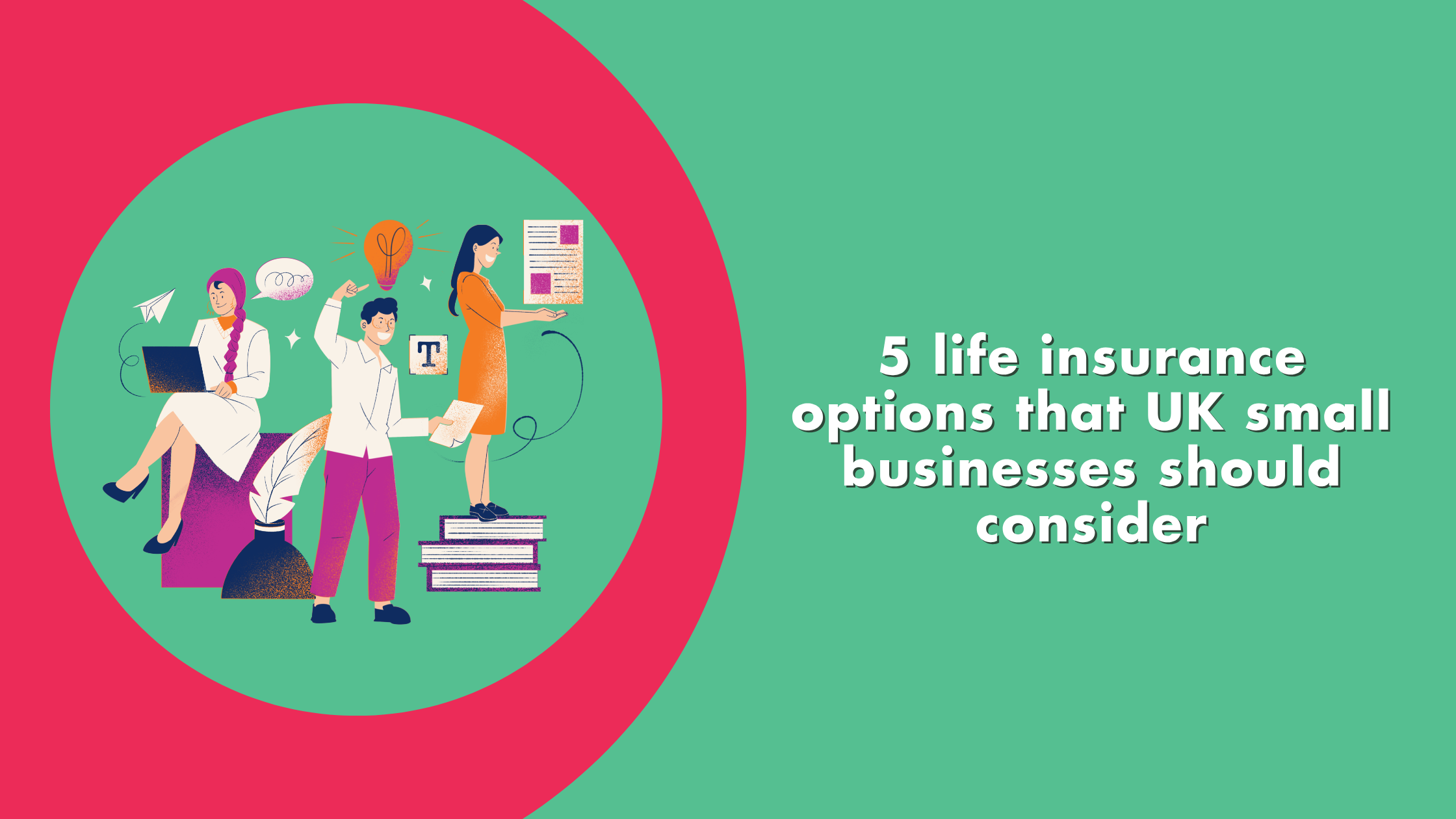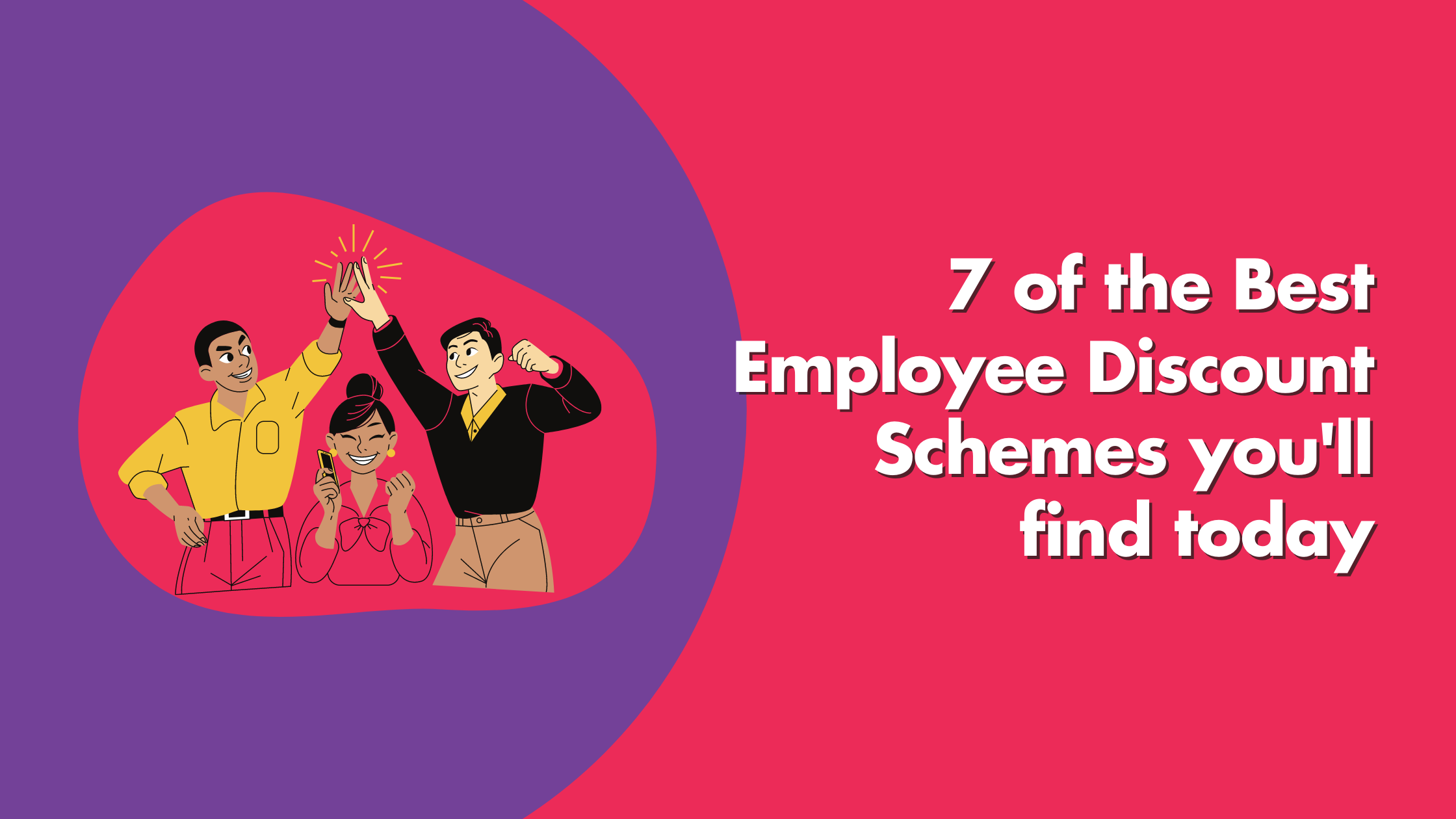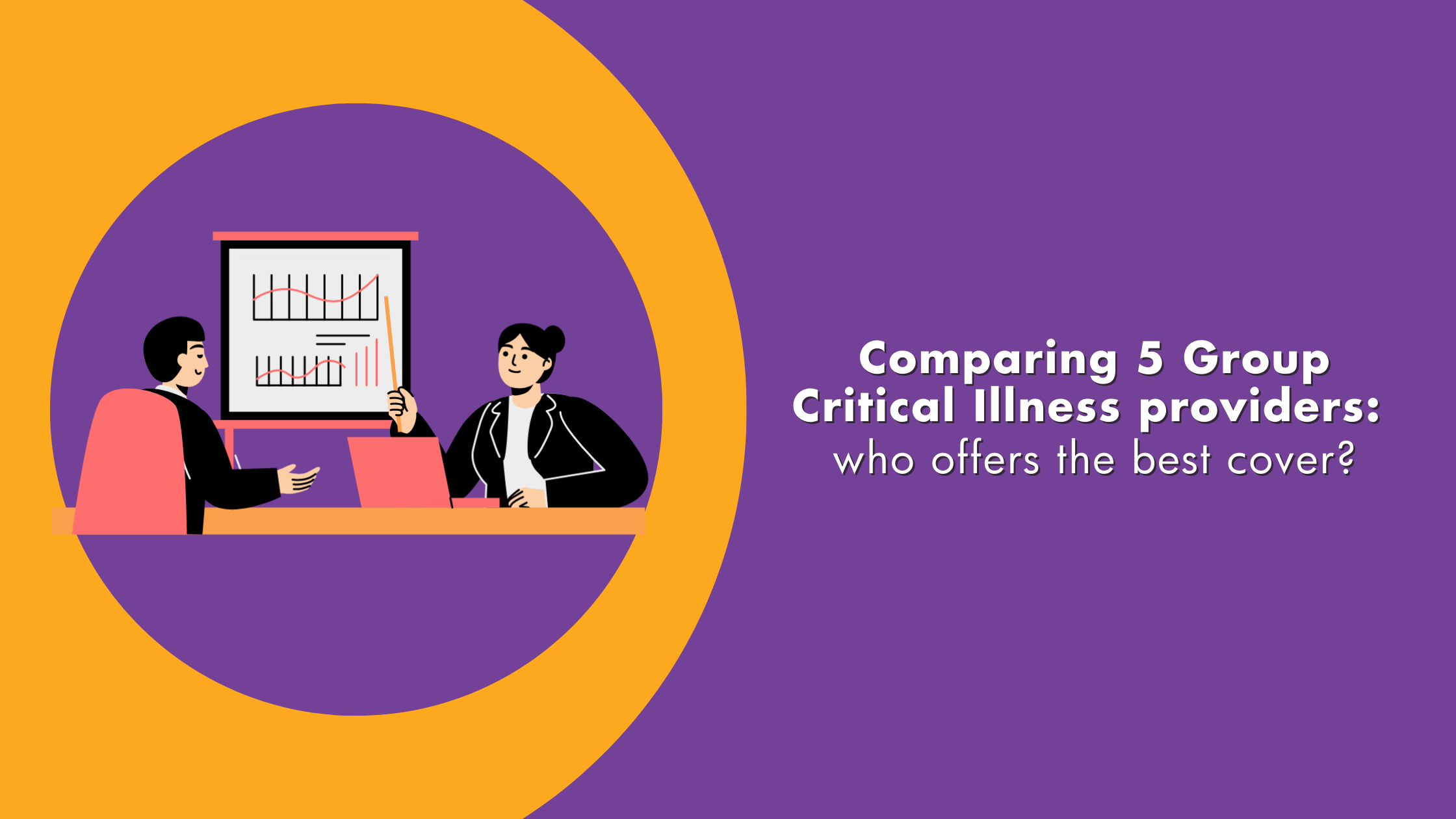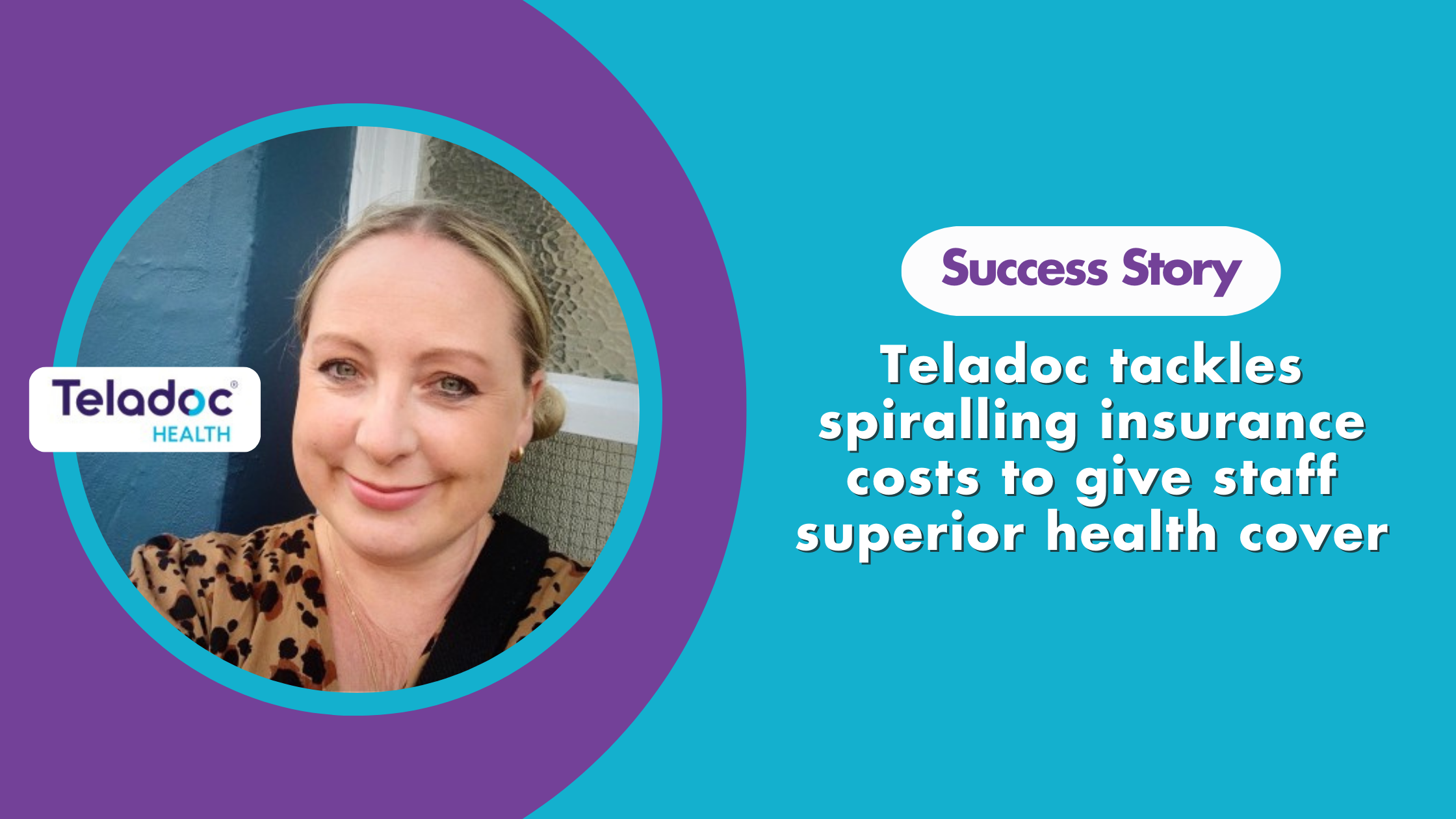If the worst happens, what kind of financial safety net will be the best choice for your business and its staff?
Believe it or not, there’s more than one type of life insurance you can buy.
In this article, we’ve listed 5 types of life cover that are available to businesses. It includes one cheeky suggestion which isn’t exactly a life insurance policy, but could be considered “life insurance adjacent”!
Let’s break down the main types of small business life insurance and look at how each one works.
Do you need free expert advice or pricing? You can arrange a no-obligation call with one of our friendly advisers to find out if it’s affordable and workable for your business. Simply contact 01273 222805 or hello@hoorayinsurance.co.uk to get started.
5 types of small business life insurance to consider
1. Group life insurance
Group Life Insurance is the most common form of life cover for small businesses. It pays out a tax-free lump sum to an employee’s beneficiary if they pass away while employed by your business.
There are many reasons why it’s worth it:
- It’s a great way to show staff that you value them
- You can offer it without needing to collect health information
- It’s affordable and can be classed as an allowable business expense
- It makes your employee benefits package more attractive
Many insurers also include free extras like bereavement support and wellbeing rewards. Some, like YuLife, turn healthy habits into points employees can spend on gift cards. Others, like Canada Life, provide support lines for both staff and their families.
At Hooray, we can talk you through the added extras that different insurers offer. You’ll also learn about the sneeky Ts and Cs that an insurer may forget to mention. Oh, and we don’t charge a fee for this service.
2. Critical illness cover
Now, Group Critical Illness cover is not exactly a life insurance policy, but it works in a similar way and is worth knowing about.
Critical illness cover pays out a lump sum if you or an employee is diagnosed with a serious condition such as cancer, a heart attack, or stroke, and becomes unable to work.
For small businesses, this type of cover:
- Shows your commitment to employee wellbeing
- Provides financial relief for staff during a tough time – helping them afford living costs or home adjustments if needed
- Provides counselling and/or dedicated nurse support
Some business owners also choose to combine this with life insurance to make the benefits package more valuable for employees.
Every policy offers a different level of support and features so it’s worth contacting us if this is a policy you’re thinking of offering.
3. Relevant life insurance
Relevant life insurance is a tax-efficient way for businesses wanting to protect a single employee or director. It pays out a lump sum if the insured person passes away or is diagnosed with a terminal illness.
A few key points about this small business life insurance include:
- Policies are paid for by the company and the benefit is written into trust. This means payouts go directly to the employee’s family, tax-free.
- Since it’s not a benefit in kind, there’s no National Insurance or P11D implications.
- You can typically insure up to 15 times the employer’s salary.
- It can’t be combined with critical illness cover and requires more detailed medical underwriting compared to group policies.
4. Key person insurance
Every business has one or two people it couldn’t do without. Key Person Insurance is there to protect the company financially if one such person dies or becomes seriously ill.
Instead of going to the employee’s family, the payout goes to the business itself. It can help cover:
- Lost revenue
- Recruitment costs
- Business loans
- Business overdrafts
A survey by Legal & General found that 52% of businesses would cease trading in under a year if a key person died or became critically ill. Yet only 18% had any insurance in place to cover their key people.
If you co-own a business and one of your fellow shareholders passes away, Shareholder protection ensures the remaining owners have the funds to buy their shares. This avoids complications with family members or legal disputes.
Without this cover, other shareholders may be negatively impacted:
- Shares might end up in the hands of someone with no connection to the business
- You may need to raise large sums of money at short notice
- It could lead to disagreements or instability in the business
With the best small business life insurance for directors in place, everyone knows where they stand and you can continue running the business as intended.
What’s the best way to buy life insurance as a small business?
Choosing the right small business life insurance depends on who or what you’re trying to protect. By working with a broker like Hooray, you can ask all the questions you ever wanted to ask from genuine experts who have your best interests at heart. We’ll talk you through the ins and outs of setting up protection properly, the various features included on a plan, plus any exclusions you ought to be aware of.
We compare small business life insurance quotes from every major insurer and don’t charge a fee for our services. Call 01273 222805 or email hello@hoorayinsurance.co.uk for a free consultation.









![_HPA24 Advice Firm of the Year [YELLOW] _HPA24 Advice Firm of the Year [YELLOW]](https://hoorayinsurance.co.uk/wp-content/uploads/elementor/thumbs/HPA24-Advice-Firm-of-the-Year-YELLOW-qwfw5zs3ef19fjq6cnwf697rj9gwqbf8o6443qptg0.png)
![_HPA24 Best Small Health Insurance Advice Firm [YELLOW] _HPA24 Best Small Health Insurance Advice Firm [YELLOW]](https://hoorayinsurance.co.uk/wp-content/uploads/elementor/thumbs/HPA24-Best-Small-Health-Insurance-Advice-Firm-YELLOW-qwfw5yu97kzz3xrji5hslrgaxvljimbic1gmmgr7m8.png)
![_HPA24 Best Sales & Retention Advice Team [YELLOW] _HPA24 Best Sales & Retention Advice Team [YELLOW]](https://hoorayinsurance.co.uk/wp-content/uploads/elementor/thumbs/HPA24-Best-Sales-Retention-Advice-Team-YELLOW-qwfw5yu97kzz3xrji5hslrgaxvljimbic1gmmgr7m8.png)
![_HPA24 Best Small Protection Advice Firm [YELLOW] _HPA24 Best Small Protection Advice Firm [YELLOW]](https://hoorayinsurance.co.uk/wp-content/uploads/elementor/thumbs/HPA24-Best-Small-Protection-Advice-Firm-YELLOW-qwfw5zs3ef19fjq6cnwf697rj9gwqbf8o6443qptg0.png)